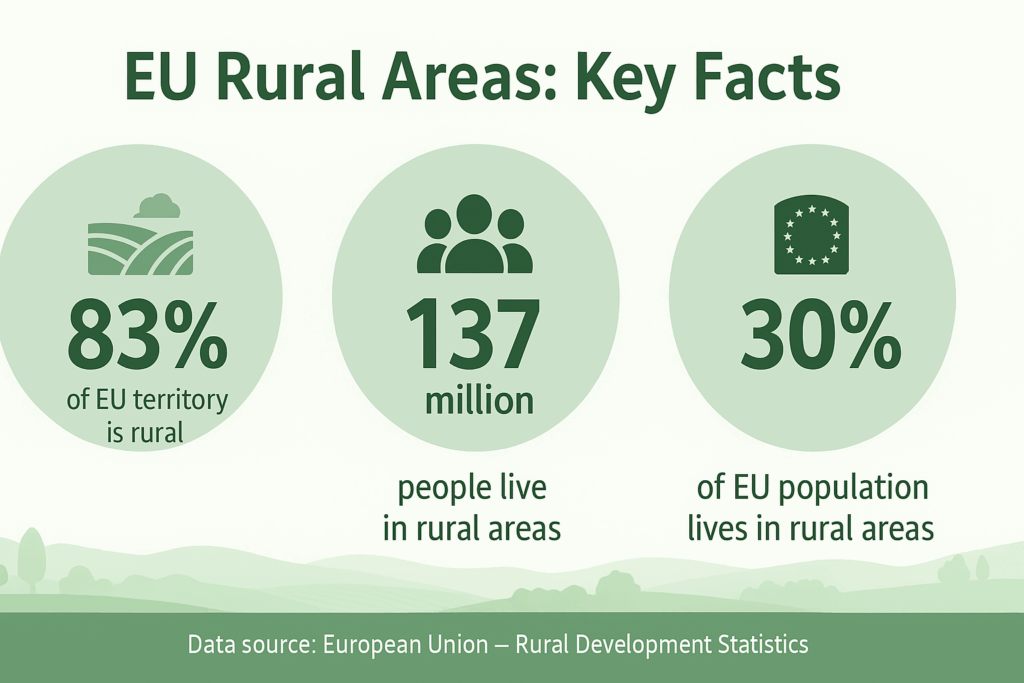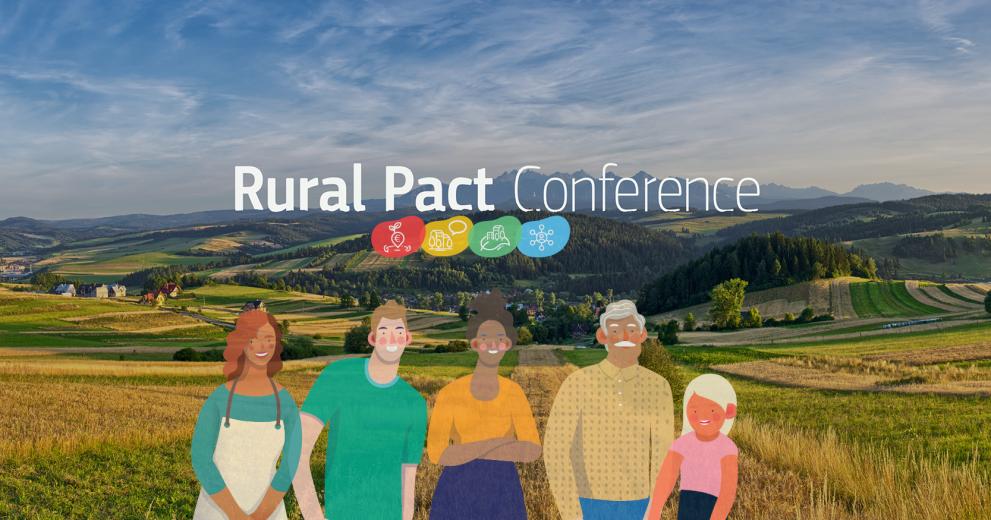The Institute for Sustainable Development (ISD), as a member of the Rural Pact, was invited to follow online the entire Rural Pact Conference 2025, held on 16–17 September in Pecq, Belgium. The two-day event gathered more than 250 rural stakeholders from across Europe, including policymakers, local actors, civil society organisations, and experts, all working together to shape the future of rural Europe.
The Conference focused on advancing EU rural policies that ensure communities are resilient, competitive, inclusive and future-oriented. It provided an important platform for dialogue and exchange, with discussions feeding directly into the upcoming update of the EU Rural Action Plan in 2026.
Key topics included:
- Safeguarding the “right to stay” in rural areas, meaning that people should have the opportunity to live, work, and thrive in their home regions.
- Recognizing the role of rural communities as essential drivers of Europe’s green and digital transitions.
- Strengthening participatory governance, where local communities are actively involved in shaping policies that affect them.
- Ensuring dedicated funding, simplified procedures, and targeted support for small organisations, grassroots initiatives, and young people in rural areas.
High-level representatives from the European Commission, national governments, the OECD and the Rural Pact Coordination Group emphasized that rural areas must stay central to Europe’s development vision. They stressed that future EU policies after 2027 should reinforce cohesion, innovation and resilience. These policies should also tackle challenges like depopulation, digital gaps and limited access to services.
Recommendations
Some of the emerging recommendations from the Conference include:
- Declaring digital connectivity, including 5G, as a basic service of general interest to ensure equal opportunities across territories.
- Supporting the creation of local energy communities to make the green transition more inclusive and beneficial for rural populations.
- Establishing concrete mechanisms for youth participation in decision-making at local, national, and EU levels.
- Investing in the bioeconomy and bio-districts to strengthen local food systems, organic production, and sustainable businesses.
- Providing capacity-building and one-stop-shop support for local actors to implement bottom-up strategies effectively.

The Conference made clear that the success of future EU rural policies depends on stronger urban-rural synergies. It also requires integrated approaches in national and regional partnership plans. Local communities must be empowered to lead their own development.
“Following the Rural Pact Conference 2025 online gave us valuable insights into the priorities and emerging strategies shaping the future of rural Europe. We are committed to supporting the integration of rural communities into EU policies, empowering local actors, and advocating for inclusive, resilient, and sustainable rural development across our region,” said Agon Ferati, Director of the Institute for Sustainable Development.
The Institute for Sustainable Development will continue to actively monitor these processes and share insights with the public, while advocating for the voices of rural communities to be reflected in European and national policies. ISD remains committed to contributing to a more resilient, inclusive, and sustainable rural future.
Link: https://ruralpact.rural-vision.europa.eu/news/advancing-eu-rural-policies-resilient-inclusive-and-future-oriented-communities-insights-rural_en

